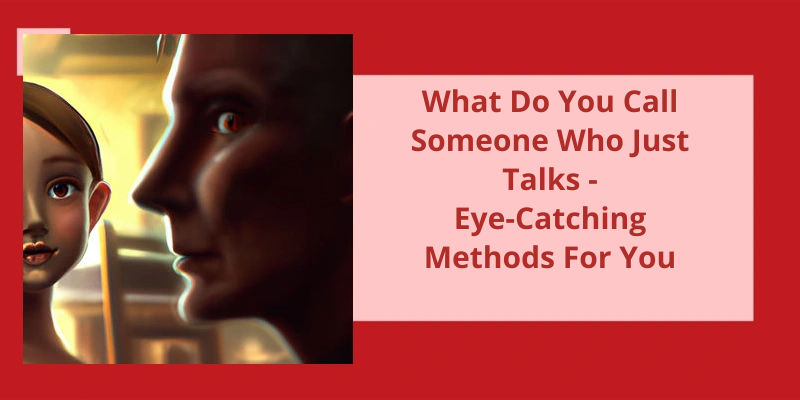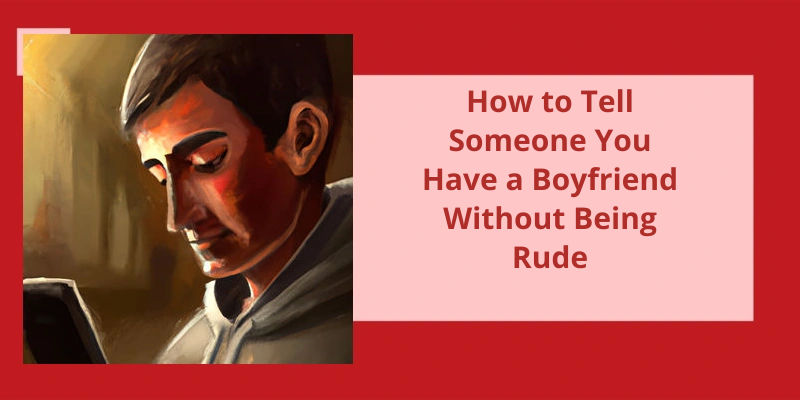As humans, we crave meaningful connections in our lives, and one of the key aspects of that’s having people to share our successes with. However, there may be times when we notice that our friends or loved ones don't seem to share in our happiness and aren’t supportive of our accomplishments. It can be difficult to grapple with these feelings, especially when we care deeply for these people. It's important to understand that there could be several underlying reasons why your friend isn’t happy for you, and to approach the situation with empathy and understanding rather than judgement or resentment.
How Do You Know Your Friend Is Not Happy for You?
It can be difficult to recognize when a friend isn’t truly happy for your successes and accomplishments. One clear sign that your friend may not be happy for you is if they’re consistently absent during difficult times. If they fail to show up or provide support when you need it most, it may indicate that they aren’t invested in your well-being or success.
If you find that your friend is consistently unavailable or unwilling to make time for you, it may suggest that they don’t value your friendship as much as you think.
They may make negative comments about your success or try to downplay your achievements. This is a clear sign that they aren’t happy for you and may be harboring feelings of jealousy or resentment.
People who’re truly happy for their friends tend to share in their joy and excitement.
Identifying when someone you care about is in an unhappy relationship can be a challenging situation. It can be tough to know what to say or do to support them, especially if they don’t themselves realize they’re in a toxic or emotionally draining situation. However, there are signs to look out for that suggest your friend is in an unhealthy relationship. Keep reading to learn more about how to tell when your friend may be struggling.
How Do You Tell if Your Friend Is Unhappy in a Relationship?
They may suddenly become more secretive or guarded about their relationship, not wanting to share much about their partner or the state of their relationship. They may also become defensive if you express concern or try to offer help. Another sign can be a change in their behavior or personality – they may become more timid, self-doubting, or even desperate for validation and attention. They may no longer seem like themselves, always second-guessing or apologizing for things that aren’t their fault.
In order to tell if your friend is unhappy in their relationship, it’s important to pay attention to their behavior and emotional state. If they seem to have lost interest in things they once enjoyed or are no longer as vibrant and happy as they used to be, it could be a sign that their relationship is causing them stress or anxiety. Other signs, such as mood swings, irritability, or withdrawing from social interactions, can also indicate that something is amiss. It’s important to approach your friend with care and concern, letting them know that you’re there for them and are willing to help them in any way you can.
One of the most important things you can do to support a friend who’s in an unhealthy relationship is to listen to their concerns and feelings. Many people who’re in abusive or toxic relationships feel trapped and alone, and having someone who’s willing to listen and validate their experiences can make a huge difference. If your friend does express concerns or fears about their relationship, it’s important to take them seriously and offer support and resources that can help.
Ultimately, it’s up to your friend to decide whether they want to stay in their relationship or leave. However, as a friend, you can offer support and guidance by helping them explore their options and providing them with the emotional and practical support they need. This may involve connecting them with resources such as counseling, legal support, or community organizations that can help them navigate difficult situations and make informed decisions about their future.
However, by being observant, supportive, and compassionate, you can help your friend navigate this difficult time and emerge stronger and happier in the long run.
Dealing with someone who isn’t happy for you can be a challenging situation. It can lead to feelings of sadness and disappointment, but it’s important to remember that you aren’t alone. There are ways to navigate this difficult time and come out stronger on the other side. In this article, we’ll explore some suggestions for supporting someone who isn’t happy for you, as well as tips for protecting your own happiness. Plus, we’ll share some inspiring happiness quotes to keep you motivated along the way.
What to Do When Someone Is Not Happy for You?
It can be difficult when someone close to you isn’t happy for your accomplishments or success. Often, we want to share our accomplishments with the people closest to us. However, when they aren’t happy for us, it can take a toll on our emotions. When this happens, it’s essential to focus on ourselves and our own happiness.
The most important thing you can do when someone isn’t happy for you is to be present for them. It’s important to let them know that you’re there for them and that you care about their feelings. You can offer support and comfort to them during this difficult time.
Listening can be incredibly helpful when someone isn’t happy for you. Allow them to express their feelings without judgment or interruption. Giving them a chance to express themselves may help them to work through their emotions and start feeling better.
It’s important to realize that unhappiness can lead to positive change. Your loved one may be going through a difficult time and may need to work through their emotions before they can feel happy for you. They may need some time to process their emotions and come to terms with their feelings.
Venting to friends can also be helpful when someone isn’t happy for you. Reach out to people who care about you and who’ll listen to you. Talking to friends can help you release your emotions and feel better about yourself.
Setting boundaries can also be important when someone isn’t happy for you. It’s essential to protect yourself and your emotions. Setting boundaries can help you to maintain your happiness while still supporting your loved one.
Finally, it’s important not to neglect your own happiness. Do things that make you happy and bring you joy. Sometimes, when someone isn’t happy for us, it can affect our own happiness. Focus on yourself and your well-being, and don’t let anyone else bring you down.
It’s important to be there for your loved one when they aren’t happy for you. Listen to them, offer support, and maintain boundaries to protect your own happiness. Remember to also focus on your own well-being and continue doing things that make you happy. Here are ten happiness quotes that might inspire you: “Happiness isn’t something ready-made. It comes from your own actions.” – Dalai Lama “The greatest happiness you can have is knowing that you don’t necessarily require happiness.” – William Saroyan “Happiness is a warm puppy.” – Charles M. Schulz “Happiness isn’t having what you want. It’s appreciating what you have.” – Unknown “Happiness is a choice. You can choose to be happy. Theres going to be stress in life, but it’s your choice whether you let it affect you or not.” – Valerie Bertinelli “The happiest people don’t have the best of everything, they make the best of everything.” – Unknown “The best way to cheer yourself up is to try to cheer somebody else up.” – Mark Twain “Happiness isn’t something you postpone for the future; it’s something you design for the present.” – Jim Rohn “Success isn’t the key to happiness. Happiness is the key to success. If you love what you’re doing, you’ll be successful.” – Albert Schweitzer “If you want happiness for an hour, take a nap. If you want happiness for a day, go fishing. If you want happiness for a year, inherit a fortune. If you want happiness for a lifetime, help somebody.” – Chinese Proverb
, we explored some of the potential causes of unhappiness. Now, let’s take a deeper look at how we can start to overcome these obstacles and cultivate more happiness in our lives.
Why Is It Harder for Some People to Be Happy?
I’d a candid conversation with a friend who confided in me about their struggles with happiness. They believed they’d all the right ingredients lifestyle, family, job security and resources, yet there was that constant nagging feeling of being unfulfilled. As they spoke, I quickly realized that their struggle was not unique. Happiness, or the lack thereof, is a complex human emotion and can be influenced by a myriad of factors.
One of the factors that make it difficult to be happy is the inability to cope with stress. For some people, stress can trigger a feeling of being overwhelmed, leading to anxious or depressive thoughts. It’s common to experience stress at work, family, or even in daily routines that can quickly spiral into negative emotions that ruin ones sense of happiness.
Another factor that affects happiness is perfectionism. People who’re perfectionists set high standards for themselves, and it’s difficult to meet these standards all the time. When they don’t meet these standards, it can lead to feelings of inadequacy, which can manifest as low self-esteem and depression. It’s important to recognize your limits and understand that not everything needs to be perfect or accomplished.
Loneliness is another factor that can make it difficult for people to be happy. People who feel alone may not feel valued, loved, and don’t have a sense of belongingness that gives them meaning and purpose in life.
Chronic health problems or chronic pain can also affect happiness. These types of conditions can lead to physical, emotional, and psychological stressors that make it difficult to enjoy life. Moreover, chronic health issues may limit peoples ability to participate in activities and impact their overall quality of life.
It’s essential to understand the root causes of your unhappiness and seek help, whether from friends, family, or a professional therapist, who can help you learn healthy coping mechanisms or ways to improve ones sense of well-being. Undertaking activities that give you a sense of purpose and accomplishment can also help you find happiness. It’s time to take action today to help you find your sense of happiness and create a life that’s worth living.
Recognizing when a friend is struggling with depression can be difficult, but it’s important to be aware of the signs. If you’ve noticed changes in your friend’s behavior, such as negative thinking, increased alcohol consumption, and loss of interest in activities they used to enjoy, they may be struggling with depression. Other signs to look out for include changes in appetite, fatigue, and a general sense of unease. In the following sections, we’ll explore these signs in more detail and provide tips for supporting your friend through this challenging time.
How Do You Know if Your Friend Is Unhappy?
As human beings, we all go through different emotional states and phases in life. Sometimes, the signs of depression or unhappiness may not be very obvious, and it can be challenging to know if your friend is going through a difficult time. However, if you pay close attention, you may be able to identify a few signs that suggest that your friend may be struggling.
One of the most noticeable signs that your friend may be unhappy is that they start to act differently. They may become quieter than usual and appear withdrawn, or they may become more irritable and easily agitated. They may also seem to have lost their sense of humor or become less talkative than they used to be.
They may express feelings of hopelessness and helplessness or have a pessimistic attitude about everything. They may also have difficulty finding joy or pleasure in the things they used to enjoy, such as hobbies or social activities.
If your friend is drinking more than usual, it may also be a sign that they’re unhappy. Alcohol can be used as a way to cope with difficult emotions, and excessive drinking can lead to more serious problems in the long term.
Your friend may also be depressed if they aren’t showing up for things they used to enjoy. They may stop attending social events or avoid going out with friends altogether. They may also become less motivated to participate in activities they previously enjoyed, such as sports or other hobbies.
They may either be eating less than usual or overeating to cope with their emotions. They may also be more likely to crave unhealthy foods or lose interest in eating altogether.
Lastly, if your friend seems tired all the time, it may be a sign that they’re struggling emotionally. Depression can be exhausting, both mentally and physically, and your friend may struggle to find the energy to do even basic tasks. Additionally, they may have trouble sleeping or experience disrupted sleep patterns, leading to persistent fatigue.
Source: Six signs my friend is depressed (and how I can help)
Conclusion
In conclusion, it’s natural to want our friends to be happy for us when good things happen in our lives. However, it’s important to remember that everyone experiences and processes emotions differently. It’s possible that your friend may be going through personal struggles or might feel envious or jealous of your accomplishments. Instead of feeling hurt or frustrated, try talking to your friend and understanding their perspective. By showing empathy and compassion, you may be able to strengthen your friendship and create a more supportive and positive environment. Ultimately, a true friend is one who stands by you through both the joys and struggles of life.






